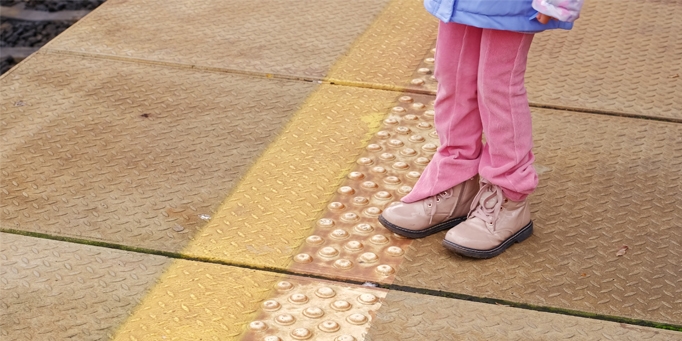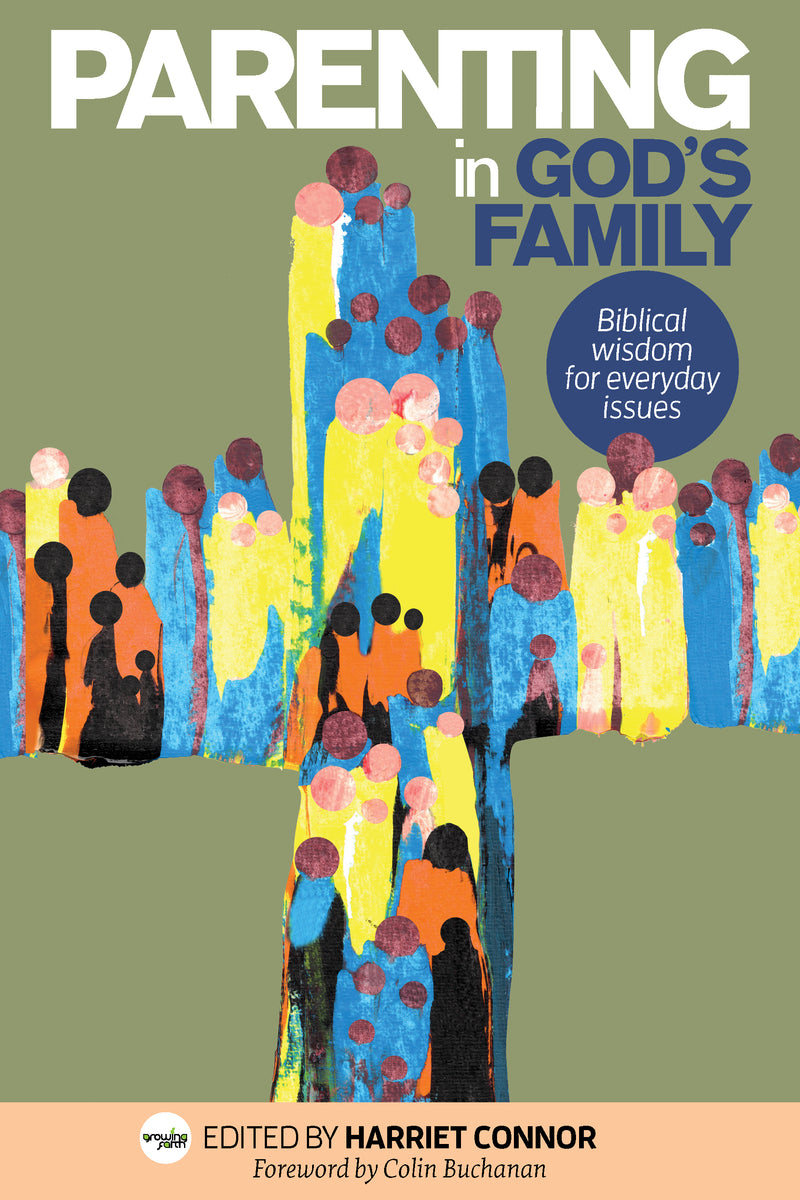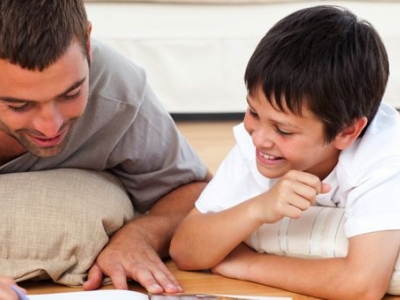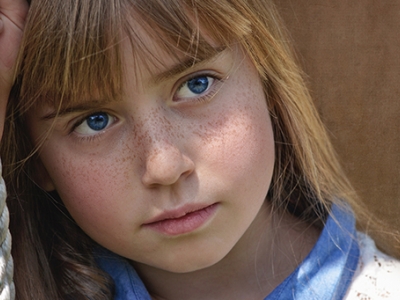
Boundaries: burden or blessing?
How setting boundaries for my kids taught me about God.
When my first daughter was a toddler, I found myself saying ‘be careful’ many times a day, to the point where it felt like my catchphrase. I learned to be more specific in helping her notice what the hazards were, and sometimes to talk her through how to handle them. I set boundaries to keep her safe, then gave her freedom within them. As I thought about it some more, I came to be grateful that in a similar way, God doesn’t just tell us ‘be careful’, then walk off, whistling, with his hands in his pockets! Previously, I’ve been tempted to think God’s instruction was mostly about prohibition, but I’m increasingly understanding how the boundaries God sets actually enable us to have freedom.
God’s instructions are neither too vague, nor too harsh. He gives us enough to know right from wrong, while giving us freedom to exercise the free will he has given us. As I try to find the line with my kids, make mistakes and recalibrate, I am so glad that God knows what he’s doing. I’m figuring things out as I learn more about myself, the world, and the other people in it. But God already knows himself perfectly (1 Corinthians 2:11), he knows the hearts of mankind (Jeremiah 17:10), and he understands the world because he created it and sustains it (Hebrews 1:2–3).
Boundaries that protect the child
One type of boundary is to protect my children from harm. When I mop the floors, I don’t expect my kids to notice what I’m doing and think about the implications. I tell them the floor is wet, so it will be slippery, and if they have to move across the floor, they should take slow small steps. This approach works for the eldest girls, but the toddler I pick up and put on the lounge with a toy that will keep her entertained for a while. I take different approaches to the same risk. I set the boundary and follow through with a reminder or with physical prevention. The kids’ job is to listen and obey, and the natural consequence is that if they don’t, they risk injury.
In the Bible God gives many instructions that are to protect his people from harm. In the Old Testament, it can often be seen in the phrase ‘so it may go well for you in the land’, indicating that obedience to God is for the people’s peace and prosperity.1 In the New Testament we read instructions where there is an obvious benefit to obedience. Take the example of gossip (Romans 1:29; 2 Corinthians 12:20). If you gossip about friends, coworkers or family members, there is often a natural consequence of people being less comfortable and open with you, not to mention the discord if the person you spoke against finds out what you said.
If we look at these boundaries as a nuisance (as my kids sometimes do when I’m mopping!), we miss the point. They are there to protect us from harm. Remember that God loves his people. His desire is for our good, and he has the perspective to know what that is.
Boundaries that protect others
Another type of boundary could be summed up as ‘hands to yourself’. In our family, it often comes out as ‘Please stop touching my face’ (from me) or ‘Give me space!’ (from my kids). This is one example of a boundary that is for the good of others. When I am overstimulated, I can’t bear the sticky little hands touching my cheeks or trying to shove something in my mouth. I ask the offending child to stop touching my face and help them move away or find something else to do with their hands. This boundary isn’t for their benefit so much as mine. It’s important for them to practise respecting other people and looking out for their good.
God instructs his followers to look out for the good of others. In fact, as Jesus says in Matthew 22:36–40, the Law and Prophets can be summed up in the commandments to love God and love your neighbour, so it is certainly something to be taken seriously. The general nature of this statement leaves a lot of wiggle room for sinful people, so the Bible helpfully expands on what it looks like to love others.
This isn’t the place to go through all the Bible’s instructions on Christian living, but it’s worth pointing out the motivation behind them. We don’t treat others with contempt because God has created them in his image. God provides for our needs abundantly, so we can pour out to those around us kind words, generosity, patience and gentleness. The Holy Spirit enables us to treat others with love, just as we have received God’s love through Jesus who loved us so much, he was willing to die for us.
Boundaries that protect the world
A final category of boundaries is those that protect the material world. This might look like asking my kids to put rubbish in the bin and to care for other people’s property. We live in a rental home, and I have reminded the kids more than once not to draw on the walls, because we don’t own this place and we need to take care of it. The natural consequences of this are less clear, but I might say that the owner might not want us to keep living here if we don’t take good care of our home.
God gave the earth to mankind to govern, and so we need to show our children how to be responsible stewards of our natural resources (Genesis 1:28–30). The extent to which we are actively involved in caring for the planet is something we have freedom to decide given our particular circumstances. Being a faithful caretaker with what we have been allotted may simply mean sorting your recycling or turning off the tap while you brush your teeth.
Don’t miss the good things!
The boundaries God has set are for our good, both as individuals and mankind as a whole. As a parent, I know that I put boundaries in place because I love my kids and I want them to have a good life that also blesses others and their world. I set them up as best I can to succeed, both in the present, and hopefully into the future too. This has helped me to think about God’s motivation for setting guidelines. God isn’t trying to deprive us of a good time; he shows us how to live well in the world he created.
If I focus in on what I shouldn’t do, I miss out on enjoying all the good things I can do. Imagine taking your kids to a café and saying they can choose whatever they want to eat, and instead of choosing a chocolate muffin, or a golden, flaky croissant, they just grumble that they can’t drink your coffee. I would wonder why they are so hung up on the one thing they can’t have, when they have freedom to choose something great that they will love! More and more I want to live and rejoice in the freedom of God’s good boundaries.
Footnotes
[1] For examples of this phrase, see Deuteronomy 4:40; 5:16; 6:3; 6:18; 12:28; 19:13; Jeremiah 7:23; 38:20; 42:6.
---
Rachel Huntington is married to Mike, who is the Assistant Minister at The Oaks Anglican Church. They have three delightful little daughters, Sylvia, Esme and Imelda, who are great fun to teach about Jesus.

Parenting in God's Family
"Parenting in God’s Family" contains reflections and advice by 16 authors from many different walks and stages of life, all seeking to encourage and equip parents with biblical wisdom and practical tips.
For more articles from Growing Faith, subscribe to our monthly e-newsletter.
To hear about the latest books and resources from Youthworks Media, subscribe here.








